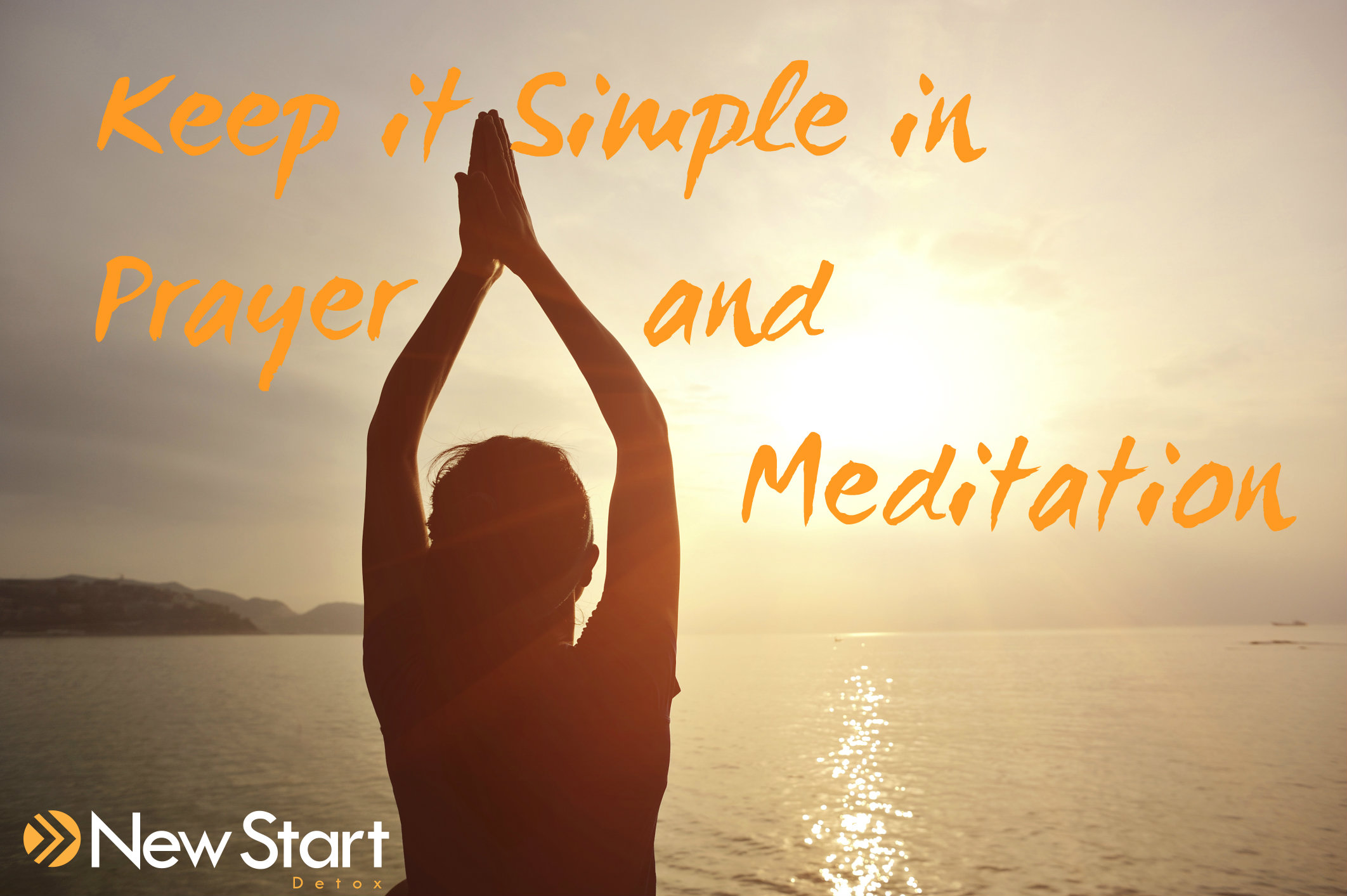 The very words “prayer & meditation” may perplex even the most devout individuals, let alone those who have had little or no exposure to spiritual practice. The words may bring up unpleasant experiences or feelings of disappointment if prayers seemingly went unanswered. On the other hand, the words may bring about memories of serene moments and personal peace. Fortunately, in terms of recovery from addiction, one can personalize his prayer and meditation practices. At the same time, it is important to accept the fact that addictions affect one’s physical, mental and spiritual wellbeing. Just as the physical body needs exercise and nutrition and the mental processes need stimulation, one’s spiritual core needs training and discipline. Prayer & meditation are essential tools for complete recovery from addiction.
The very words “prayer & meditation” may perplex even the most devout individuals, let alone those who have had little or no exposure to spiritual practice. The words may bring up unpleasant experiences or feelings of disappointment if prayers seemingly went unanswered. On the other hand, the words may bring about memories of serene moments and personal peace. Fortunately, in terms of recovery from addiction, one can personalize his prayer and meditation practices. At the same time, it is important to accept the fact that addictions affect one’s physical, mental and spiritual wellbeing. Just as the physical body needs exercise and nutrition and the mental processes need stimulation, one’s spiritual core needs training and discipline. Prayer & meditation are essential tools for complete recovery from addiction.
Definitions of prayer and meditation
For purposes of simplification, one can consider prayer an outgoing process. It may take the form of a plea or a request. Prayer may seek relief from pain or illness; it may seek solutions to difficulties, such as divorce or bankruptcy; it may ask for strength and courage to face each new day without depending on alcohol or a chemical substance or extra comfort food to survive. Prayer also may ask spiritual questions, such as, “Who or what is God?” or “Why don’t I feel anything when I pray?” On the other hand, one might think of meditation as an incoming process. It is an invitation for a spiritual presence to enter into one’s being. It means listening for answers to the questions and requests made in prayer.
Prayer practices
Happily, for the recovering addict who often resists taking direction or relying on others, including a Higher Power, prayer does not include a list of “musts” and “shoulds.” One can pray aloud or in quiet, alone or in a group, kneeling, sitting, standing, walking, lying down. One can pray in joy or in sorrow, in confusion or in gratitude. The important thing is to do it, to acknowledge a spiritual power great than one’s self and to make conscious contact with that power. Prayer opens the door to hope, which every person in recovery craves.
Meditation suggestions
Meditation also can take a variety of forms, with the simplest involving concentration on deep breathing. By focusing on inhaling light and peace and exhaling negativity and stress, one can relax and listen for guidance from a Higher Power. Other forms include finding a mantra, a special word as the point of concentration, or chakra meditation, in which one focuses on the body’s major nerve center. Because addicts previously have relied on substances to relieve pain, anxiety and depression, they need to find a healthy alternative. Prayer and meditation can serve that purpose.

